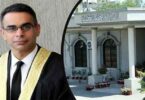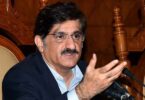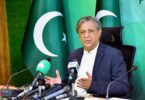ISLAMABAD (APP): Minister for Religious Affairs and Interfaith Harmony Pir Noor ul Haq Qadri Monday said the religious affairs ministries had a big role in bringing reforms in the Muslim societies across the world.
The religious ministries should present the Islamic teachings in such a way that could appeal to the young generation, he added.
The minister was addressing the 13th Conference of Executive Council of Ministers of Islamic Affairs and Endowments of Arab and Islamic Countries in Cairo, said a press release. Qadri lamented that today, the world was facing ethical and social crises, including extremism, sectarianism and terrorism.
The present method of educating and upbringing the young generation, he added, had failed to meet the modern-day challenges particularly posed by the social media.
He urged the religious ministries and scholars to come up with a solid road-map to cope with such crises in order to attain peace and security across the Muslim world. They should educate the people about their social, political and religious obligations in proper manners, he maintained.
Meanwhile, moderating a plenary session on ‘The Contract of Citizenship and its Impact on Achieving Societal and Global Peace’ at the 32nd Conference of Supreme Council for Islamic Affairs on Sunday, the minister said peaceful coexistence was the basic unit of ‘Contract of Citizenship’ setting aside the colour, race, religion, culture or language.
He said Islam and Shariah did not contradict with that theory as in the Islamic society, people of all ranks equally enjoyed the legal rights. The ideology, he said, was based on ‘give and take’ relationship, which transformed the individual as a responsible citizen of the society.
Qadri urged all the segments of society to play their due role and spread the culture of tolerance, acceptance of others, and to counter extremist thoughts. Minister of Awqaf and Endowments Egypt Prof Dr Mohamed Mokhtar Jom’ah, who is also head of the Supreme Council for Islamic Affairs, formally inaugurated the conference on Saturday.
The conference, which was participated by ministers, muftis, scholars, thinkers, and writers from different countries, discussed various topics, including the concept of state’s development, rights and duties within social contract, religious tolerance, and status of women in an Islamic state.






